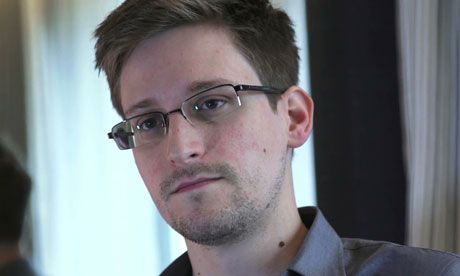First and foremost, the 21st century is witnessing a shift from collective technological power to individual technological power. What I mean by this is one contractor (cue Edward Snowden), working on a small island in Hawaii, can completely dismantle and wreak havoc on a national security apparatus that employs over 30,000 people and spends billions of dollars on an annual basis. On a similar note, a few hackers in China can cause an electrical power outage in small rural town in Iowa. These are the pitfalls of wielding individual technological power. There are just as many positives, however. Think Mark Zuckerberg, who founded the world's most influential social networking site from a dormroom in Harvard, or individual TEDx sensations who spur intellectual conversations across the globe.
Secondly, while the 21st century is host to this revolutionary movement of individualization, the 20th century saw power being yielded in the form of rich bureaucracies, fascist regimes (employing groupthink, propaganda, the list goes on...), and national security apparatuses that could not be threatened by small antagonistic pockets of people. That's not to say that these collective systems no longer exist, in fact, some are growing bigger: our federal government keeps spending money like it's growing on trees. However, these big organizations are losing power as more and more individuals are gaining power via advanced technology.
Thirdly, the words "advanced technology" bring me back to the NSA: so what exactly, in a nutshell, happened with Snowden? Basically, a technologically savvy college dropout with classified clearance copied approximately 31,000 documents that apparently pose an enormous threat to our nation's security. I will not elaborate on these matters; they're too time consuming and complex to break apart. Al Jazeera composed a brilliant timeline of Snowden's activities that's worth a careful read.
In response to all this chaos, the NSA finally decided to open its doors to a resentful world that views the agency as nothing other than Big Brother. So what are some key takeaways from these interviews? And what are some follow up questions that deserve to be asked? Here's my input:
- General Keith Alexander, the Director of NSA, affirmed that the agency only intercepts phone calls from 50-60 American citizens. Questions: Will this list grow in the future? How does the agency decide which people to thoroughly spy on? When did this program start?
- The NSA collects millions of email address books globally, which is analogous to its collection of phone contacts. How many emails does it actually read though? How do they decide which email accounts to thoroughly check?
- In order to explore private communication accounts in depth, the NSA needs a special court order to authorize a search warrant. These court proceedings are not open to the American public or, for that matter, any independent review commission. This process is intrinsically flawed because the government is not being checked by more objective outside sources. Can an independent commission be created to counterbalance the government's overriding power? The citizens on the commission can come from creditable human rights organizations that evaluate privacy concerns.
- A legal cybersecurity framework is not in place in the U.S. When will it be?


No comments:
Post a Comment